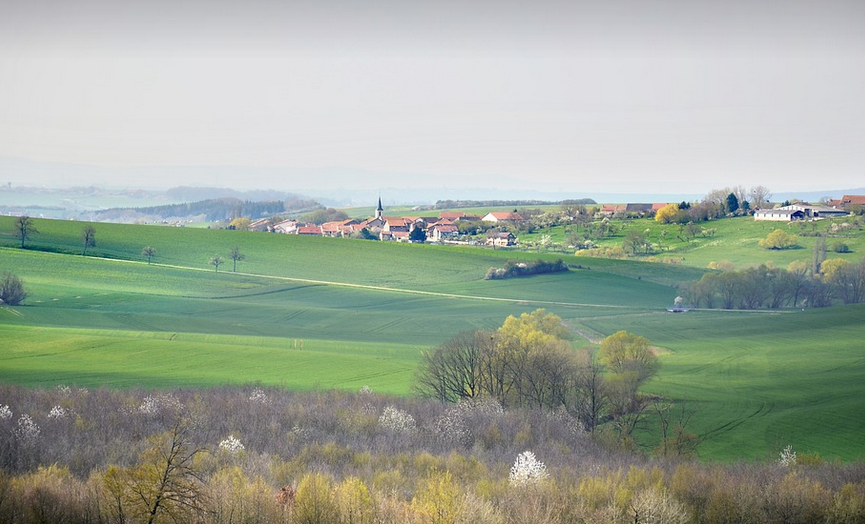A Sustainable Solution for Concrete Waste
Portland, Oregon, a city known for its green initiatives and progressive attitude, is also deeply invested in sustainable practices. When it comes to waste management, concrete recycling stands out as a shining example of how we can turn our construction debris into valuable resources.
The beauty of concrete recycling lies in its multifaceted application. From roads and sidewalks to building foundations and even art installations, the potential of repurposed concrete is immense. This eco-friendly process redefines what we think about waste, transforming it from a burden to a valuable building block for our future.
Concrete, while durable and long-lasting, can also pose a considerable environmental challenge. The sheer volume of construction waste generated every year is staggering, often ending up in landfills. However, with the rise of innovative recycling methods, we’re witnessing a shift towards sustainability. Concrete recycling offers an appealing alternative.
Portland’s commitment to this practice is evident in its robust infrastructure and dedicated programs. The city has fostered a collaborative environment that encourages businesses and individuals to actively participate in concrete recycling initiatives.
What makes concrete recycling particularly relevant for Portland? Let’s delve deeper into the specifics:
**Why Concrete Recycling Matters:**
Concrete recycling is more than just a trend; it’s an essential step towards building a cleaner and more sustainable future. Here’s why:
1. **Environmental Protection:** Concrete waste often ends up in landfills, where it contributes to greenhouse gas emissions. By recycling concrete, we significantly reduce the environmental burden associated with traditional disposal methods.
2. **Resource Conservation:** Concrete is a durable material that plays a vital role in our infrastructure. Recycling it helps conserve precious resources and reduces the demand for new materials.
3. **Economic Viability:** Concrete recycling provides a unique market opportunity, generating jobs and stimulating economic growth within the city.
4. **Community Engagement:** Concrete recycling initiatives often involve community participation and educational workshops, fostering environmental awareness and inspiring citizen action.
5. **Innovation in Action:** Portland, known for its innovative spirit, is consistently at the forefront of technological advancements in concrete recycling. From new technologies to advanced processing techniques, the city is driving progress within this field.
**The Concrete Recycling Process: A Step-by-Step Guide**
Concrete recycling can be broken down into a series of steps that ensure efficient and sustainable processing:
1. **Collection:** Concrete waste is collected from construction sites and demolition projects, ensuring the material reaches dedicated recycling facilities.
2. **Sorting & Screening:** The collected concrete undergoes rigorous sorting and screening procedures to separate different types of concrete, removing debris and unwanted materials.
3. **Crushing & Grinding:** Using specialized machinery like crushers and grinders, the sorted concrete is broken down into smaller particles for further processing.
4. **Processing & Modification:** The crushed concrete undergoes various modifications depending on its intended use, such as adding aggregates or modifying its chemical composition.
5. **Re-integration & Utilization:** The processed concrete finds its way back into the construction process to create new materials and products that are ready for use in various projects.
**Specific Applications of Recycled Concrete: A Look at Concrete Innovations**
Here’s a glimpse into how recycled concrete is being utilized within the city:
1. **Roads & Patios:** Recycled concrete is a significant component in many road construction projects, particularly for base layers and paving materials.
2. **Walls & Structures:** The strength and durability of recycled concrete make it suitable for building foundations, walls, and other structural components.
3. **Drainage Systems:** Reclaimed concrete can be used to create drainage systems for roads, walkways, and other areas, ensuring efficient water management.
4. **Artificial Turf & Landscaping:** Recycled concrete aggregates are often incorporated into artificial turf materials and landscaping designs, adding a touch of natural beauty while utilizing waste material.
5. **Art Installations:** An unexpected application for recycled concrete is its use in art installations around the city. The raw texture of concrete can be transformed into stunning sculptures, murals, and other artistic creations.
**Concrete Recycling Programs: A City-Wide Effort**
Portland’s commitment to sustainability extends beyond individual actions. Here are key initiatives that support concrete recycling throughout the city:
1. **Citywide Collection Programs:** Programs are in place to encourage collection of construction waste from businesses and homeowners, ensuring proper sorting and disposal.
2. **Collaborative Partnerships:** Local organizations join forces with government agencies, construction companies, and waste management facilities to create comprehensive recycling programs.
3. **Educational Resources and Awareness:** City-wide campaigns and outreach initiatives educate citizens about the importance of recycling concrete and the benefits it offers.
4. **Incentives & Financial Support:** Financial incentives for businesses and individuals who actively participate in concrete recycling programs are often offered to encourage participation.
5. **Community Engagement Activities:** Workshops, demonstrations, and community events promote understanding and educate citizens about concrete recycling while creating a fun and interactive learning experience.
**Looking Ahead: The Future of Concrete Recycling in Portland**
As Portland continues to develop its sustainable vision for the future, concrete recycling remains a pivotal element. Here’s what we can expect:
1. **Technological Advancements:** Research and development will continue to advance technologies that make concrete recycling more efficient and cost-effective.
2. **Policy & Regulatory Change:** Portland is likely to implement stricter regulations regarding waste management, encouraging businesses and individuals to prioritize recycling practices.
3. **Increased Public Awareness:** Educating audiences on the benefits of concrete recycling will be a constant focus to ensure widespread participation.
4. **Global Impact:** Portland’s leadership in concrete recycling is likely to inspire cities worldwide to pursue similar initiatives, creating a global wave of sustainable construction practices.
Concrete recycling represents more than just an environmental solution; it represents a chance for Portland to become a model for future generations, leaving behind a legacy of innovation and resourcefulness. As we move forward, the city will continue to embrace concrete recycling as a critical component in building a brighter and more sustainable future.
